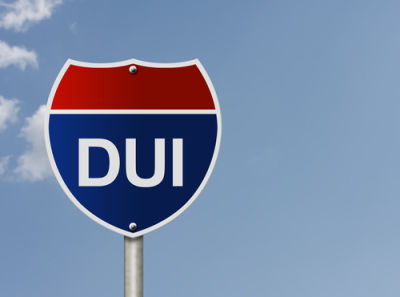Your case may present unique circumstances, yet, usually, facing a DUI charge can be a bewildering and distressing ordeal. Here’s what DUI signifies, what to anticipate when facing charges, the likely penalties in Louisiana, how to prevent future incidents, and how to navigate the various phases of a DUI arrest.
What Is a DUI?
DUI (also known as DUII, DWI, OUI, or OWI, depending on your state of residence) refers to driving under the influence of alcohol or drugs. This encompasses not only illicit substances but also prescription medications and attempting to operate a vehicle while impaired. It differs from being publicly intoxicated or causing a disturbance while intoxicated, which might lead to a drunk and disorderly charge but doesn’t involve driving a vehicle.
DUI’s Aspects
A DUI comprises several elements, with the pivotal one being attempting to drive while intoxicated. Let’s examine the components of a DUI.
- Operating a vehicle. Even if you’re not actively driving, a DUI charge can arise if you insert your keys into the ignition, press any controls, or engage any gears. In certain jurisdictions, even if you’re parked but seated in the driver’s seat, you may be detained as these actions constitute operating a vehicle and indicate an intention to drive while impaired. Conversely, if you’re seated or resting in the backseat, it demonstrates a lack of intent to move the vehicle, resulting in no charge.
- Being under the influence. This implies impairment due to alcohol or drugs, affecting your ability to operate a vehicle safely.
- Complying with a field sobriety test. If pulled over and suspected of driving under the influence, you might be requested to undergo a field sobriety test. This involves tasks typically challenging to perform when impaired, such as reciting the alphabet backward, walking in a straight line, or balancing on one foot.
- Exceeding the legal blood alcohol level (BAC). In numerous states, including Louisiana, the limit is 0.8%. While individuals may reach and surpass the BAC threshold at different rates with varying drink amounts, it’s advisable to avoid excessive drinking, even inadvertently, and understand your limits.
- Declining to submit to a breathalyzer or preliminary alcohol screening (PAS) test. Although voluntary, refusal won’t prevent a DUI charge but may entail negative repercussions.
- Being arrested and posting bail. Depending on the charge’s severity, similar to other arrests, posting bail could secure your release from jail. Failure to post bail could result in incarceration until your hearing.
- Driver’s license suspension. In many states, a DUI arrest automatically triggers driver’s license suspension. Some states provide temporary permits for DUI arrestees, subject to the DUI charge’s gravity.
- Attending court for your hearing. Similar to other charges, failure to appear could prompt a judge to issue a bench warrant for your arrest. Engaging legal representation well-versed in state DUI laws is prudent. If financially incapable, the court will appoint legal counsel.
- Sentencing. Dismissal of charges means no DUI record or conviction. Conversely, if convicted, a range of consequences may ensue, including fines, penalties, license suspension, mandatory community service, substance abuse programs, ignition interlock device installation, increased car insurance premiums, and jail time.
For a first offense, especially if no harm occurred, a DUI misdemeanor charge may be imposed. Repeat offenses or instances involving injuries can lead to harsher penalties, such as prolonged incarceration and restitution payments to victims or their families.
Is Stopping Motorists Legally Permissible?
It is, provided the officer possesses reasonable cause (also termed “reasonable suspicion”) to believe the driver violated the law. This might be evident through signs of impairment like swerving, or a traffic infraction like a malfunctioning taillight or failure to halt at a stop sign. DUI checkpoints are also lawful and don’t necessitate evidence of wrongdoing.
Additionally, if there’s probable cause to search your vehicle for drugs or alcohol, law enforcement possesses the legal authority to do so, even without your consent. Legal nuances can arise here, contingent on your circumstances, thus consulting legal counsel is advisable.
What Occurs When You Decline Sobriety Testing
While field sobriety and breathalyzer tests are typically voluntary, blood, breath, and urine tests can be compulsory under specific circumstances. All 50 states have “implied consent” laws mandating motorists lawfully arrested for DUI to undergo chemical testing. Refusal can entail adverse consequences and work against you during trial.
What Occurs When You Face a DUI in Louisiana?
As per the DMV, these are the LA DUI BAC laws:
- Age 21 or older non-commercial drivers: BAC of .08% or higher
- Commercial drivers: BAC of .04% or higher (school bus drivers are considered commercial drivers in Louisiana)
- Drivers under age 21: BAC of .02% or higher
A first-time DUI offense in Louisiana is categorized as a misdemeanor, resulting in potential penalties upon conviction:
- Minimum fine of $300 and maximum of $1,000
- Minimum jail time of 10 days and a maximum of six months
- Probation supervision for up to two years
- Driver’s license suspension for 90 days
- Ignition interlock installation
- Loss of commercial driver’s license
- Enhanced penalties for BAC of .20% or more or driving with a child under 12
- Approximately 30 hours of education in driver improvement, substance abuse, and MADD victims impact programs
For a second offense within 10 years, jail time and fines may escalate. A third offense can result in jail time of up to five years, driver’s license revocation for two years, and fines of up to $2,000.
Louisiana Drunk Driving Defenses
Collaborating with your defense attorney can lead to charges being dismissed or reduced, resulting in a lighter penalty. According to the DMV, potential defenses include:
- Improper roadblock setup
- Lack of probable cause for the initial traffic stop
- Inadequate procedure in administering the breathalyzer or BAC blood test
- Clean driving record
- Absence of prior DUI convictions
- No injuries, property damage, or child passengers
- BAC is slightly above the legal limit
- BAC wasn’t illegal while driving
Note that Louisiana-licensed drinking establishments can’t be civilly liable for third-party injuries from serving visibly intoxicated persons. However, serving alcohol to an underage or visibly intoxicated individual carries penalties ranging from 30 days to six months in jail, a fine of $100-$500, and liquor license suspension or revocation.
Key Steps Post-DUI Arrest
Here are actions to aid your DUI case following arrest:
- Refrain from speaking to the police without your attorney present. You have the right to remain silent.
- Retain an attorney experienced in DUI cases. If unable to afford one, a court-appointed attorney will be provided.
- Provide all evidence and information to your attorney.
- Document the event in detail as soon as possible to prevent memory fade.
- Locate witnesses and gather evidence, such as security footage or bar receipts, if beneficial to your case.
- Displaying good conduct between arrest and trial may mitigate your sentence. Failure to do so could lead to bail revocation or increase.
Preventing Future DUI Charges
For a one-time DUI incident with a low risk of recurrence, great. However, if multiple DUIs are a concern, consider these strategies:
- Designate a driver
- Use rideshare or taxi services if consuming alcohol
- Seek a ride from a friend or family member
- Stay at a friend’s place or hotel overnight
If grappling with alcohol or drug abuse and seeking assistance or treatment, contact SAMHSA’s National Helpline.
DUI Arrest FAQs
What constitutes a DUI?
DUI occurs when someone operates a vehicle while under alcohol or drug influence and is arrested by law enforcement.
Is a DUI charge a felony or misdemeanor?
Typically, a first-time DUI is treated as a misdemeanor. Aggravating factors like bodily harm can elevate it to a felony.
Will a DUI result in driver’s license loss?
A DUI arrest often leads to immediate license seizure. Additionally, a conviction can extend the license loss duration.
How much is a DUI fine?
Fines vary by state, ranging from $150 to $6,250, contingent on offense severity and prior convictions.
In Summary
Being arrested for DUI demands careful handling to mitigate consequences and long-term repercussions. Legal proceedings can be intricate, necessitating legal representation to safeguard your rights. Moreover, adopting responsible drinking habits and refraining from impaired driving can avert future DUI charges and their associated adversities.
Assisting With Bail Bonds in St. Tammany
Bail Bonds St. Tammany, an owner-operated bonding firm with multiple Louisiana locations, offers over 20 years of industry experience and 24/7 availability. We prioritize client respect and the principle of “innocent until proven guilty.”
We process bond payments securely, and our diligent staff completes all paperwork promptly, minimizing custody duration. Our industry knowledge facilitates a streamlined bail acquisition process. Payment plans are available. For further information on offered bail bonds and initiation, contact any of our locations or complete an online form.
Photo by idn yul on Flickr.




